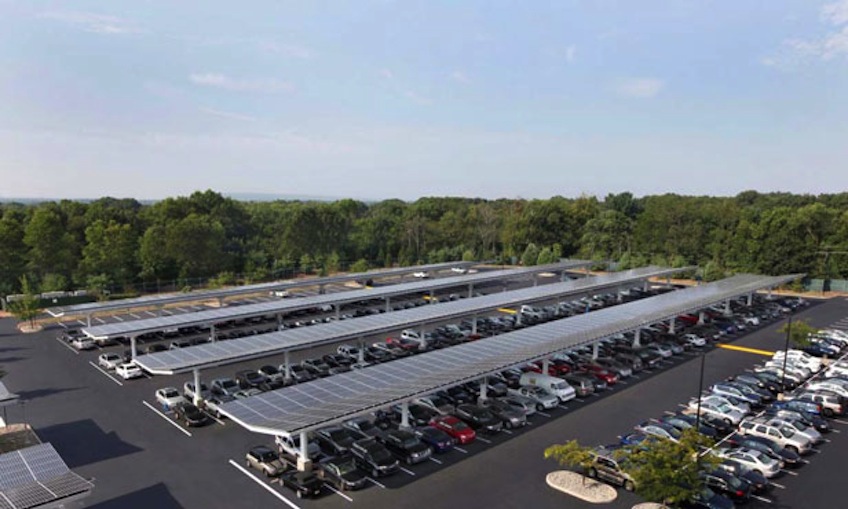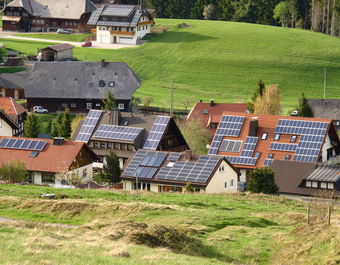
Those hippies at Citigroup are at it again. In late March, they published a study asserting that 2014 was ushering in the “Age of Renewables” in the U.S. According to that study, electricity costs are being set primarily by the cost of natural gas and Citigroup’s analysis predicts that gas will become somewhat more expensive while renewables already are at or near a competitive level with gas.
According to an April 1, 2014 article on greentechmedia.com:
The report notes that nuclear and coal are structurally disadvantaged because both technologies are viewed as uncompetitive on cost. Environmental regulations are making coal even pricier, and the aging nuclear fleet in the U.S. is facing plant shutdowns due to the challenging economics.
“We predict that solar, wind, and biomass continue to gain market share from coal and nuclear into the future,” the Citi analysts write.
Now, stealing a line from Gil Scott-Heron, Citigroup has released a new study titled Global Energy 2020: The Revolution Will Not Be Televised as Disruptors Multiply. Actually, the report was released on July 28 to Citigroup’s megabucks investors; it’s just now that us regular members of the public get a chance to read it.
Much of the report is focused on oil and gas, both of which Citigroup approves of. Interestingly, however, Citigroup believes that gas will increasingly be diverted to transportation uses while renewables supplant both coal and gas generation.
The growth in gas demand for power generation could be less significant than is commonly believed. Gas is commonly thought of as the substitute fuel for coal in power generation once coal plants retire. But rising renewables generation should increasingly take over market shares of coal- and gas-fired generation, particularly in an environment of slow electricity demand growth.
As for nuclear, it is essentially dismissed in the report, apart from one section in which Citigroup says it expects many of Japan’s now-shutdown reactors to reopen within three years. But clearly Citigroup does not see nuclear power as a viable alternative to either renewables or natural gas.
And Citigroup remains highly bullish on solar power:
Moving forward, we believe global solar growth will be driven by economics, fuel diversity and emerging financing vehicles as well as some country specific legislative overlay. Moreover, this growth looks set to continue for the long term, as solar takes an ever greater share of energy generation, helped by improving economics against fossil fuels.

Citigroup notes that solar already has achieved cost parity with fossil fuels in some countries (including the western U.S.) and predicts that parity will occur in many more countries by the end of this decade. And that is true, asserts Citigroup, even when using what economists call “Levelized Cost of Electricity (LCOE),” which takes into account not only construction and generating costs, but capacity factors, expected lifetimes, and other factors. The nuclear industry typically has argued that when analyzing generation by LCOE, nuclear comes out cheaper than alternatives. Citigroup says that’s just not so.
The full Citigroup report can be downloaded here.
*In other solar power news, Greentechmedia.com reported today that solar parking lots are continuing to expand at a rapid rate in the U.S., with installation of 180 Megawatts of new solar above parking lots expected by the end of the year, and continued rapid expansion over the next two years. In 2017, projections are for a drop in installation from 2016 levels (although still above 2014 levels) because of expiring tax breaks. But that drop is expected to be temporary as the economics of solar parking lots are appealing regardless of tax breaks.
*In Vermont, a unique partnership is enabling construction of a 2.5 MW solar microgrid in Rutland that will be backed up with 4 MW of battery storage that will help integration of the solar power into the larger grid. Such microgrids can–and should–be installed everywhere, but especially in small towns that wish to become more self-reliant and less dependent on giant utilities who, let’s face it, don’t often have any interests but their own at heart.
*Not all the solar power news is good, however. The Los Angeles Times last week reported that some states, especially in the sunny Southeast, are not only discouraging solar power, they’re actively setting up roadblocks to installation, especially of rooftop solar. Florida, South Carolina and Virginia were specifically called out as hostile to solar development despite the fact that the climates there are ideal for widespread solar. What was that vacation line about The Sunshine State, Florida? Does the state turn into Siberia when the tourists leave and we’ve just never been told?
Michael Mariotte
August 14, 2014
Permalink: https://www.nirs.org/citigroup-the-revolution-will-not-be-televised/
You can now support GreenWorld with your tax-deductible contribution on our new donation page here. We gratefully appreciate every donation of any size–your support is what makes our work possible.
Comments are welcome on all GreenWorld posts! Say your piece above. Start a discussion. Don’t be shy; this blog is for you.
If you’d like to receive GreenWorld via e-mail, send your name and e-mail address to nirs@nirs.org and we’ll send you an invitation. Note that the invitation will come from a GreenWorld@wordpress.com address and not a nirs.org address, so watch for it.
If you like GreenWorld, you can help us reach more people. Just use the icons below to “like” our posts and to share them on the various social networking sites you use. And if you don’t like GreenWorld, please let us know that too. Send an e-mail with your comments/complaints/compliments to nirs@nirs.org. Thank you!
GreenWorld is crossposted on tumblr at https://www.tumblr.com/blog/nirsnet




Reblogged this on your passport to complaining and commented:
What do we make of it when one of the worlds largest banks tells us nuclear is not a viable alternative to either renewable energy or natural gas? Where solar is at parity with fossil fuels on the western half of the US.
What Citigroup seems to be doing is what a lot of Wall street does.
Nothing.
They sit on the sidelines until there is a clear path to profits. Which happens to be why Wall street actually is not very good for the future of the USA.
The basic idea has always been for governments to get involved and do the heavy lifting to get an industry started. This idea goes all the way back to Airmail to promote the aircraft industry. And it worked pretty good there!
But what I am seeing is that the fossil fuel industry has had it’s lobbyists pushing congress and the senate extremely hard to make sure renewable energy does not get a foot hold. To not get started.
One may ask why would they do this?
The answer is simply. The fossil fuel industry is experiencing historic record profits. And Stock holders (mostly executives) are cashing in big time! They do not want to see a good thing stopped.
It truly does not matter to those individuals the the environment is being hurt. They are greedy and they only know they want more and more and……..
Randy
You’re clearly on target when you say Wall Streets sits on the sidelines until there are big profits to be made. That’s historically true and probably has never been more true than today. But what Citigroup is saying in this report–which echoes what it has said over the past year or so and what other major investment firms have started saying as well–is that they now see very big profits ahead in the renewable energy business. And while this Citi report certainly supports fracking and natural gas generally, it projects a pretty dismal outlook for both coal and nuclear. The renewable energy revolution is still in its early stages, and both the nuclear and fossil fuel industries are actively trying to block its growth, but it’s becoming more and more clear that renewable energy IS the energy source of the future, and Wall Street knows it.
It truly is my hope that more people, especially investors, think the way you are.
For way to many decades now renewable energy has been forced to take a back seat. Whenever I would bring up energy storage eyes would roll and people would say that will never happen. Well, in the above article, energy storage is talked about. I was very glad to see that mentioned.
It has always seemed sad to me that none of the Metra Stations have included renewable energy. Both in parking lot coverage and offering EV recharging.
Randy